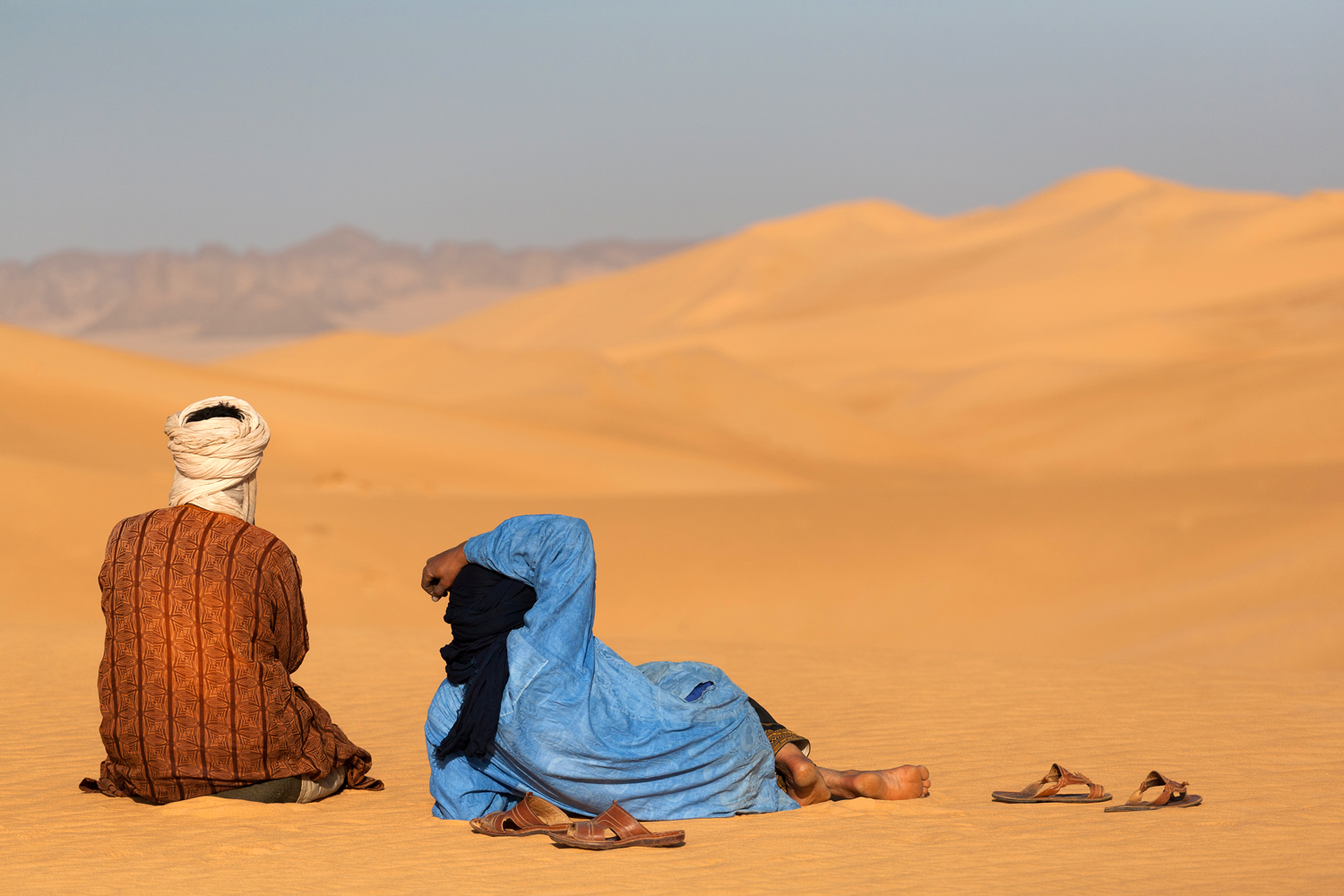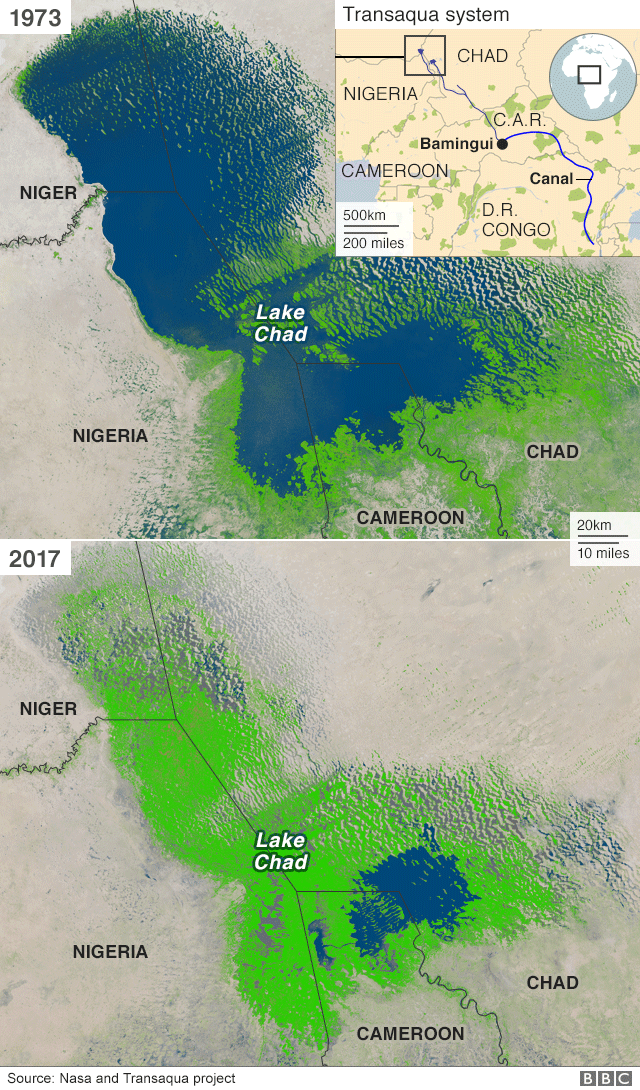Lake Chad in Africa originally reached from Chad to Nigeria, Cameroon, and Niger. Climate change and unsustainable water management have resulted in Lake Chad losing 90 percent of its surface area! The lake is a water source for millions of people in West Africa.
The visible signs of climate change and excessive drought include cattle carcasses on roads, dusty skies, sand dunes, and dry polders. The United Nations is helping hold back the Sahar desert as it invades Lake Chad in order to improve conditions for local people to farm sustainably, increase viability for food, and generate income. The plan is to plant tens of thousands of drought-resistant trees around the vanishing Lake in order to restore vegetation and support communities.
Nearly 30 million people live along the shorelines of Lake Chad. Poor governance and lack of economic activity has resulted in Lake Chad becoming a recruiting ground for Islamist militants.
“The Boko Haram insurgency in northeastern Nigeria and neighbouring countries has displaced more than 2 million people and led to massive destruction of basic infrastructure, such as roads, medical centres and schools, as well as housing and farms.” Reliefweb.int
The UN Office for the Coordination of Humanitarian Affairs, states that nearly 7 million people face the threat of famine and half a million children suffer from severe acute malnutrition. By planting trees and preventing the Sahara from further encroaching on the territory, the UN hopes to spur economic development, decrease violence, and halt food insecurity. The efforts by the United Nations also support women’s initiatives. In pilot areas, youth and women are involved on a daily basis to protect young plants and fight against the threat of desertification.
Aldelano Solar Solutions can help front-line efforts of desertification by supporting communities with clean water, cold storage and solar power as economic activity slowly build. Humanitarian organizations and governments have the opportunity to supply locals with robust, off-grid solar equipment that spur economic activity and health through life-saving resources.
Solar power and tangible desertification efforts have the power to stop violent extremism by offering locals jobs! Economic growth can prevent those in dire need from being paid to join militant groups. Preventing further erosion from climate change and offering locals lasting support will create needed sustainability for the Lake Chad region.


